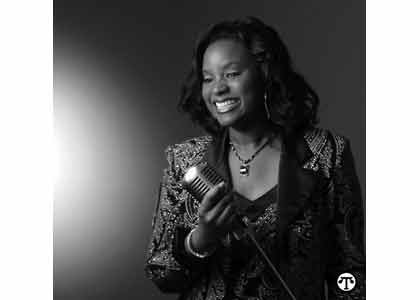(NAPSM) — Can you remember what you thought, felt and hoped for 16 years ago? Neither can Altonet Fillmore, a charismatic person with kind eyes and a ready smile. However, then as now, a reservoir of compassion resided in her bones—and compelled her to register as a bone marrow donor with the “Be The Match Registry.”
Today, the 36-year-old woman is a human resources professional with a passion for singing. Her impressive vocals led her to compete in national talent shows, including “Star Search,” “American Idol” and “Showtime at the Apollo.”
In 1996, when Altonet joined the registry, she was still an idealistic college freshman. It wasn’t until 2012—16 years later— that she learned she was a match for a middle-aged woman with leukemia. That’s when she discovered something about herself— time hadn’t altered her call to compassion.
“I felt it was a privilege and an honor to be able to give something that my body makes every day and be able to save a life,” she said.
Around the world, 25 million caring people like Altonet have joined international volunteer marrow donor registries in hopes of being the cure for a patient in need.
A marrow or umbilical cord blood transplant is a potentially life-saving treatment for leukemia, lymphoma and sickle cell disease. It can also help to cure more than 70 other diseases, including inherited immunodeficiency disorders and metabolic disorders. “Be The Match” connects patients with their donor match for life-saving marrow or cord blood transplants.
Donors have helped to save a quarter of a million lives but thousands of other patients who face life-threatening diseases are still waiting for their match.
More potential donors are especially needed by African American patients whose chances of finding a matching donor are only 66 to 76 percent. People are more likely to match someone of their own race or ethnicity.
There are many misperceptions about bone marrow donation, and Altonet heard them all before her donation— including stories that it’s a painful or dangerous process. However, with anesthesia, Altonet didn’t feel any pain during the procedure. She returned to work just two days after her donation— a common scenario.
“Don’t listen to what you may have heard— speak with people who are
able to give you correct information about the process,” said Altonet. “It’s a rewarding experience, and if you are ever selected to donate bone marrow, then you should definitely consider it.”
A few months after her donation, Altonet learned that her bone marrow recipient was doing well and out of the hospital. Although she didn’t know her, Altonet was deeply moved by the woman’s struggle.
“The one thing she taught me was how to love a stranger,” she said. “I prayed for her more than I prayed for myself or anyone else in a long time.”
Today, Altonet is using her inspired voice and spirit to encourage more people— especially those of African American descent—to join the “Be The Match Registry” as potential bone marrow donors.
By joining the “Be The Match Registry” as a committed potential bone marrow donor, you could be the cure for someone suffering from a life-threatening disease, too. In fact, you could be a patient’s only chance to survive and it only takes a few minutes to join.
For Altonet, it’s in her bones to care. Knowing that her bone marrow saved a life enriches her own life every day.
You can also contribute to the cure as a financial contributor or volunteer. Be The Match provides patients and their families one-on-one support, education and guidance throughout the transplant process.
For more information, visit BeTheMatch.org or call 800-MARROW-2.
